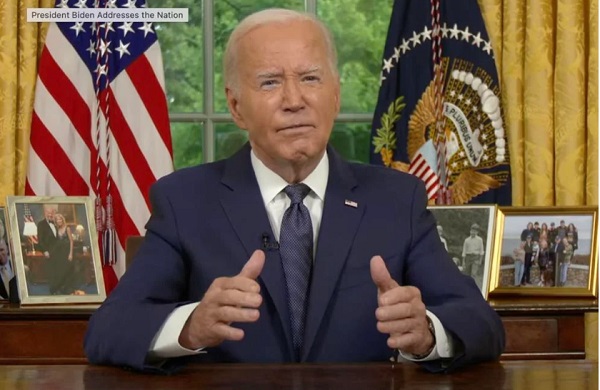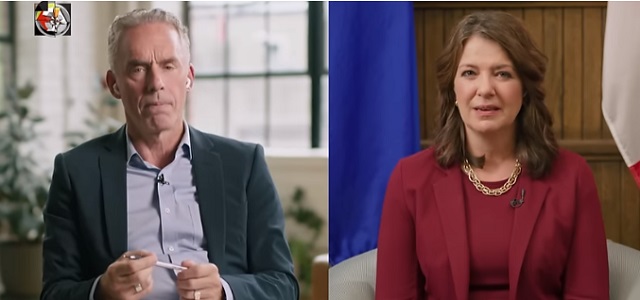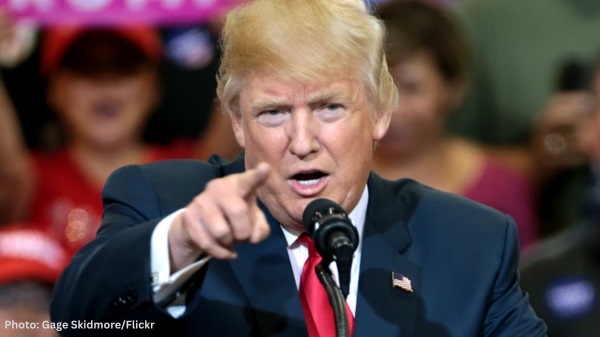Business
Trudeau’s environment department admits carbon tax has only reduced emissions by 1%
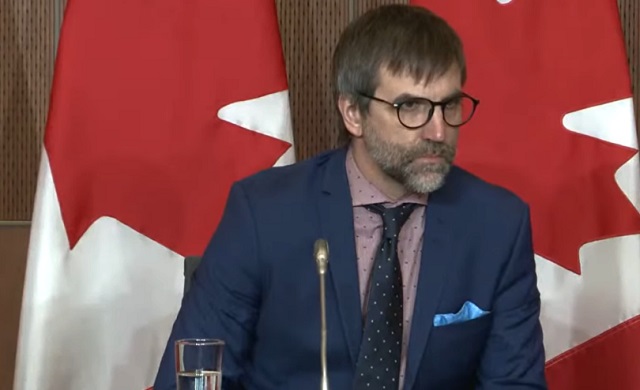
From LifeSiteNews
The Trudeau Liberals had first seemed to claim that the unpopular carbon tax had cut emissions by 33%, only to explain that the figure is merely a projection for 2030 and the actual reduction thus far stands at 1%.
The Liberal government has admitted that the carbon tax has only reduced greenhouse gas emissions by 1 percent following claims that the unpopular surcharge had cut emissions by 33 percent.
During a May 21 House of Commons environment committee meeting, Environment Minister Steven Guilbeault testified that the carbon tax cut greenhouse gas emissions by 33 percent, before his department backtracked to explain that the figure is a projection for the year 2030, and that the true figure sits at a mere 1 percent.
“I will be the first one to recognize it is complex,” said Guilbeault, according to information obtained by Blacklock’s Reporter.
“If you want simple answers, I am sorry. There is no simple answer when it comes to climate change or modeling,” he said, adding, “Carbon pricing works. This has never been clearer.”
“Carbon pricing alone accounts for around a third of emission reductions expected in Canada,” said Guilbeault, explaining this number was based on “complex statistical calculations.”
However, Conservative Members of Parliament (MPs) pointed out that the numbers provided by Guilbeault’s department do not add up to a 33 percent decrease in emissions, as the department had characterized.
“How many megatonnes of emissions have been directly reduced from your carbon tax since it was introduced?” Conservative MP Dan Mazier questioned.
According to Guilbeault, after the introduction of the carbon tax, emissions reduced by five megatonnes in 2018, fourteen megatonnes in 2019, seventeen megatonnes in 2020, eighteen megatonnes in 2021, and nineteen megatonnes in 2022.
However, the total tonnes of emissions reduced by the carbon tax comes to 73 million tonnes, or 2 percent, of the combined 3,597 million tonnes of emissions over the same five-year period, according to National Inventory Reports.
According to Blacklock’s, Guilbeault failed to explain how the environment department calculated a 33 percent benefit.
Conservative MP Michael Kram pressed Guilbeault, saying, “I want to make sure I have the math correct.”
“In 2022 emissions were at 708 megatonnes and the carbon tax was responsible for reducing 19 megatonnes,” he continued. “By my math that works out to a three percent reduction.”
Associate deputy environment minister Lawrence Hanson explained that the department’s 33 percent emissions cut is a projection of the emissions cut by 2030, not a current statistic.
“It’s the distinction between how much the carbon price might have affected emissions in one year versus how much in 2030,” said Hanson. “So when you heard us talking about its responsible for one third of reductions we were talking about the 2030 number.”
This explanation was echoed by Derek Hermanutz, director general of the department’s economic analysis directorate, who said, “When we talk about one third, it’s one third of our expected reductions. That’s getting to 2030.”
“Yes, but three percent of the total emissions have been reduced as a result of carbon pricing?” Kram pressed.
“No, emissions have declined three percent in total,” assistant deputy minister John Moffet responded.
“And so only one percent of that three percent is from the carbon tax?” Kram asked.
“To date,” Moffet replied.
Prime Minister Justin Trudeau’s carbon tax, framed as a way to reduce carbon emissions, has cost Canadian households hundreds of dollars annually despite rebates.
The increased costs are only expected to rise. A recent report revealed that a carbon tax of more than $350 per tonne is needed to reach Trudeau’s net-zero goals by 2050.
Currently, Canadians living in provinces under the federal carbon pricing scheme pay $80 per tonne, but the Trudeau government has a goal of $170 per tonne by 2030.
On April 1, Trudeau increased the carbon tax by 23 percent despite seven out of 10 provincial premiers and 70 percent of Canadians pleading with him to halt his plan.
Despite appeals from politicians and Canadians alike, Trudeau remains determined to increase the carbon tax regardless of its effects on citizens’ lives.
The Trudeau government’s current environmental goals – which are in lockstep with the United Nations’ 2030 Agenda for Sustainable Development – include phasing out coal-fired power plants, reducing fertilizer usage, and curbing natural gas use over the coming decades.
The reduction and eventual elimination of so-called “fossil fuels” and a transition to unreliable “green” energy has also been pushed by the World Economic Forum, the globalist group behind the socialist “Great Reset” agenda in which Trudeau and some of his cabinet are involved.
Business
Estonia’s solution to Canada’s stagnating economic growth

From the Fraser Institute
By Callum MacLeod and Jake Fuss
The only taxes corporations face are on profits they distribute to shareholders. This allows the profits of Estonian firms to be reinvested tax-free permitting higher returns for entrepreneurs.
A new study found that the current decline in living standards is one of the worst in Canada’s recent history. While the economy has grown, it hasn’t kept pace with Canada’s surging population, which means gross domestic product (GDP) per person is on a downward trajectory. Carolyn Rogers, senior deputy governor of the Bank of Canada, points to Canada’s productivity crisis as one of the primary reasons for this stagnation.
Productivity is a key economic indicator that measures how much output workers produce per hour of work. Rising productivity is associated with higher wages and greater standards of living, but growth in Canadian productivity has been sluggish: from 2002 to 2022 American productivity grew 160 per cent faster than Canadian productivity.
While Canada’s productivity issues are multifaceted, Rogers pointed to several sources of the problem in a recent speech. Primarily, she highlighted strong business investment as an imperative to productivity growth, and an area in which Canada has continually fallen short. There is no silver bullet to revive faltering investment, but tax reform would be a good start. Taxes can have a significant effect on business incentives and investment, but Canada’s tax system has largely stood in the way of economic progress.
With recent hikes in the capital gains tax rate and sky-high compliance costs, Canada’s taxes continue to hinder its growth. Canada’s primary competitor is the United States, which has considerably lower tax rates. Canada’s rates on personal income and businesses are similarly uncompetitive when compared to other advanced economies around the globe. Uncompetitive taxes in Canada prompt investment, businesses, and workers to relocate to jurisdictions with lower taxes.
The country of Estonia offers one of the best models for tax reform. The small Baltic state has a unique tax system that puts it at the top of the Tax Foundation’s tax competitiveness index. Estonia has lower effective tax rates than Canada—so it doesn’t discourage work the way Canada does—but more interestingly, its business tax model doesn’t punish investment the way Canada’s does.
Their business tax system is a distributed profits tax system, meaning that the only taxes corporations face are on profits they distribute to shareholders. This allows the profits of Estonian firms to be reinvested tax-free permitting higher returns for entrepreneurs.
The demand for investment is especially strong for capital-intensive companies such as information, communications, and technology (ICT) enterprises, which are some of the most productive in today’s economy. A Bank of Canada report highlighted the lack of ICT investment as a major contributor to Canada’s sluggish growth in the 21st century.
While investment is important, another ingredient to economic growth is entrepreneurship. Estonia’s tax system ensures entrepreneurs are rewarded for success and the result is that Estonians start significantly more businesses than Canadians. In 2023, for every 1,000 people, Estonia had 17.8 business startups, while Canada had only 4.9. This trend is even worse for ICT companies, Estonians start 45 times more ICT businesses than Canadians on a per capita basis.
The Global Entrepreneurship Monitor’s (GEM) 2023/24 report on entrepreneurship confirms that a large part of this difference comes from government policy and taxation. Canada ranked below Estonia on all 13 metrics of the Entrepreneurial Framework. Notably, Estonia scored above Canada when taxes, bureaucracy, burdens and regulation were measured.
While there’s no easy solution to Canada’s productivity crisis, a better tax regime wouldn’t penalize investment and entrepreneurship as much as our current system does. This would allow Canadians to be more productive, ultimately improving living standards. Estonia’s business tax system is a good example of how to promote economic growth. Examples of successful tax structures, such as Estonia’s, should prompt a conversation about how Canadian governments could improve economic outcomes for citizens.
Authors:
Business
Federal government seems committed to killing investment in Canada

From the Fraser Institute
Business investment in the extraction sector (again, excluding residential structures and adjusted for inflation) has declined from $101.9 billion to $49.7 billion, a reduction of 51.2 per cent
Canada has a business investment problem, and it’s serious. Total business investment (inflation-adjusted, excluding residential construction) declined by 7.3 per cent between 2014 and 2022. The decline in business investment in the extractive sector (mining, quarrying, oil and gas) is even more pronounced.
During that period, business investment in the extraction sector (again, excluding residential structures and adjusted for inflation) has declined from $101.9 billion to $49.7 billion, a reduction of 51.2 per cent. In fact, from 2014 to 2022, declines in the extraction sector are larger than the total decline in overall non-residential business investment.
That’s very bad. Now why is this happening?
One factor is the heavy regulatory burden imposed on Canadian business, particularly in the extraction sector. How do we know that proliferating regulations, and concerns over regulatory uncertainty, deter investment in the mining, quarrying and oil and gas sectors? Because senior executives in these industries tell us virtually every year in a survey, which helps us understand the investment attractiveness of jurisdictions across Canada.
And Canada has seen an onslaught of investment-repelling regulations over the past decade, particularly in the oil and gas sector. For example, the Trudeau government in 2019 gave us Bill C-69, also known as the “no new pipelines” bill, which amended and introduced federal acts to overhaul the governmental review process for approving major infrastructure projects. The changes were heavily criticized for prolonging the already lengthy approval process, increasing uncertainty, and further politicizing the process.
In 2019, Ottawa also gave us Bill C-48, the “no tankers” bill, which changed regulations for vessels transporting oil to and from ports on British Columbia’s northern coast, effectively banning such shipments and thus limiting the ability of Canadian firms to export. More recently, the government has introduced a hard cap on greenhouse gas emissions coming from the oil and gas sector, and new fuel regulations that will drive up fuel costs.
And last year, with limited consultation with industry or the provinces, the Trudeau government announced major new regulations for methane emissions in the oil and gas sector, which will almost inevitably raise costs and curtail production.
Clearly, Canada badly needs regulatory reform to stem the flood of ever more onerous new regulations on our businesses, to trim back gratuitous regulations from previous generations of regulators, and lower the regulatory burden that has Canada’s economy labouring.
One approach to regulatory reform could be to impose “regulatory cap and trade” on regulators. This approach would establish a declining cap on the number of regulations that government can promulgate each year, with a requirement that new regulations be “traded” for existing regulations that impose similar economic burdens on the regulated community. Regulatory cap-and-trade of this sort showed success at paring regulations in a 2001 regulatory reform effort in B.C.
The urgency of regulatory reform in Canada can only be heightened by the recent United States Supreme Court decision to overturn what was called “Chevron Deference,” which gave regulators powers to regulate well beyond the express intent of Congressional legislation. Removing Chevron Deterrence will likely send a lot of U.S. regulations back to the drawing board, as lawsuits pour in challenging their legitimacy. This will impose regulatory reform in and of itself, and will likely make the U.S. regulatory system even more competitive than Canada.
If policymakers want to make Canada more competitive and unshackle our economy, they must cut the red tape, and quickly.
Author:
-

 International20 hours ago
International20 hours agoSecret Service Repeatedly Rejected Offers To Use Drones At Deadly Trump Rally, Whistleblower Says
-

 Business1 day ago
Business1 day agoEstonia’s solution to Canada’s stagnating economic growth
-

 Alberta1 day ago
Alberta1 day ago‘Fireworks’ As Defence Opens Case In Coutts Two Trial
-

 Business1 day ago
Business1 day agoFederal government seems committed to killing investment in Canada
-

 International1 day ago
International1 day agoSwitzerland’s new portable suicide ‘pod’ set to claim its first life ‘soon’
-

 International20 hours ago
International20 hours agoHouse Passes Bipartisan Resolution Establishing Trump Assassination Attempt Task Force
-
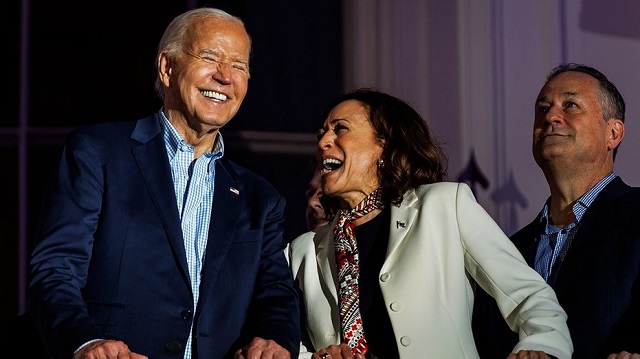
 Bruce Dowbiggin13 hours ago
Bruce Dowbiggin13 hours agoGarbage In, Garbage Out: The Democrats 2024 Election Coup
-

 COVID-191 day ago
COVID-191 day agoLeaked documents: German gov’t lied about shots preventing COVID, knew lockdowns did more harm than good





